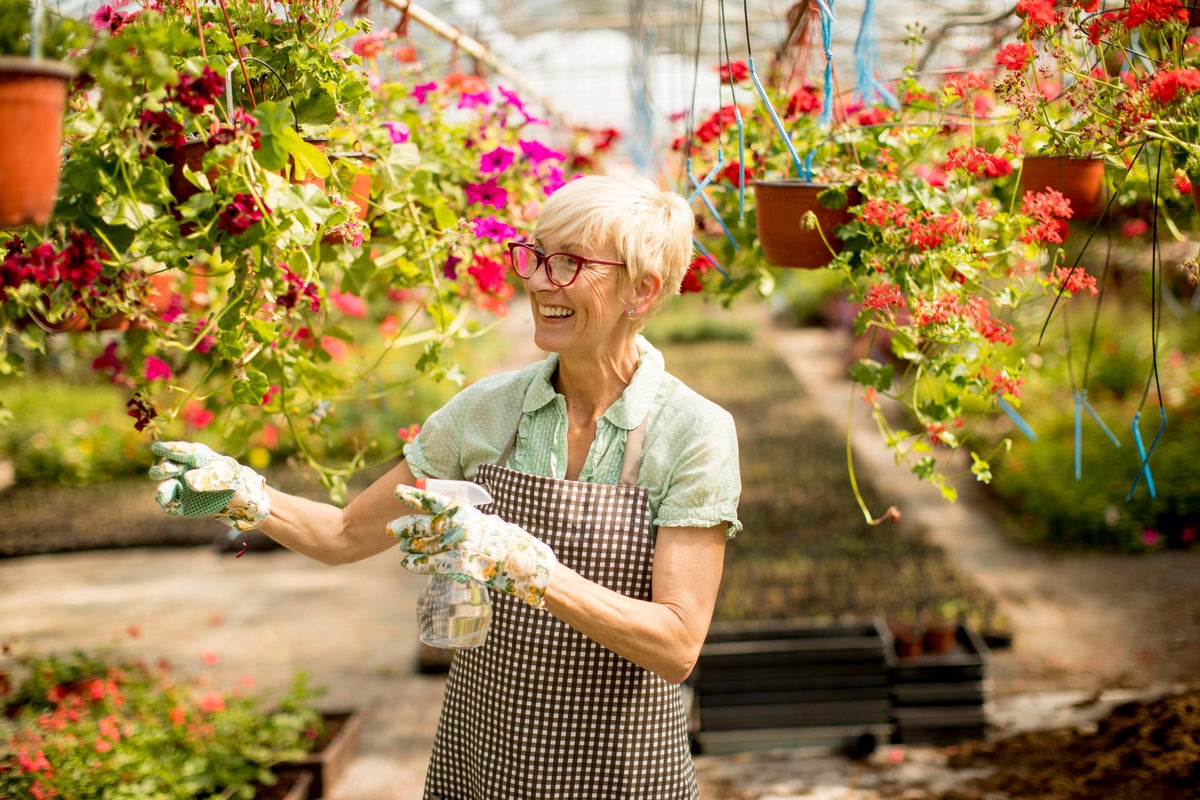10 ways gardening can enhance your wellbeing

If you’re searching for a natural way to lift your mood, boost your health and add purpose to your daily routine, the answer might be closer than you think – perhaps right outside your door, or even on your windowsill.
Once considered a quiet pastime for seasoned horticulturists or those with sprawling estate gardens, gardening is now being embraced by people of all ages and lifestyles as a powerful way to support overall wellbeing.
Whether you’re tending herbs in a kitchen window, planting a riot of colour in your flower beds, or simply caring for a few leafy houseplants, the rewards reach far beyond the visual appeal.
We spoke to Lucy Moss, psychotherapist and member of the Counselling Directory, to dig into 10 different ways gardening can help enhance your wellbeing – especially in later life.
1. Boosts mood
Tending to plants in the fresh air can do wonders for your mood.
“Being outside with plants, trees and fresh air is something that can naturally elevate your mood,” says Moss. “The physical aspect of gardening releases serotonin – the feel-good chemical – in a more gentle way than going for a jog. You also get vitamin D from the sun, another serotonin booster to soak up when outdoors.”
2. Gets you outside and off screens
If you find yourself constantly being sucked into a doomscrolling spiral, a change of scenery could help.
“Scrolling is such a time vacuum. It leaves people feeling quite empty and opens up an unhelpful comparison to others,” reflects Moss. “However, when one is gardening and busy with muddy hands, it gives way to a rare moment where phones are put aside. This is highly positive for one’s mental health.”
3. Provides a sense of purpose
The act of nurturing plants, from planting seeds to harvesting, creates a structured activity and can help ignite a sense of purpose.
“I often find that clients, particularly those who have recently retired, sometimes feel like they have lost their sense of self,” says Moss. “Gardening is a creative process which delivers tangible results and this naturally leads to increased feelings of agency and achievement.
“Gardening is a very accessible way to keep yourself mentally engaged, you don’t even need a garden. You can start with a planting box on your windowsill. Plants are always changing, so will always need your attention and that can help give you structure to your day.”
4. Offers a space free of judgement
Start off with something simple, and see your confidence grow as your plants begin to flourish.
“For clients struggling with anxiety or low self-worth, gardening offers a space free from judgement in which to try out new things without fear of failure,” says Moss.
5. Keeps you active
Activities like digging, raking and weeding are great exercises that can help maintain muscle strength and flexibility.
“Once people stop working, they often see a physical decline, and if your body is struggling physically that can link to depressive symptoms,” says Moss. “Gardening can be a helpful way to keep physically active, which will have benefits on your mental health.”
View this post on Instagram
6. Promotes mindfulness
“Being in nature deeply engages all our senses and invites us to slow down and be present,” reflects Moss. “It’s very tactile and very visual, because you are really paying attention to what you’re doing in a garden. This offers similar benefits to mindfulness such as lowered cortisol levels.”
7. Can help people cope with grief
“The act of tending to something living, especially after trauma or loss, offers a form of somatic regulation,” says Moss.”If you’re going through a very hard time in your life, and you’re feeling low, that sense of nurturing and growing can give you a sense of achievement and hope.
“Gardening can also be very symbolic. The act of nurturing something and growing it can help you go through that process internally at the same time.”
8. Helps regulate emotions
“There are often times where my clients feel very overwhelmed and being outside can have a calming effect,” says Moss. “All of your attention is engaged in observing the nature around you and I think that can help your emotions feel less intense.”
9. Boosts confidence
“Working with clients experiencing depression, I like to suggest small, manageable activities that offer a sense of purpose, and gardening is really great for this,” says Moss. “It helps to build confidence and self-esteem.”
10. Fosters social connection
“I’ve had clients who have engaged in community gardens, particularly after bereavement, and it’s been really helpful for them,” says Moss. “When you are gardening in a group, it’s very collaborative. In addition, it’s a great way to build up connections if you are feeling lonely.
“You can be together and have companionship, but because you are engaged in something at the same time, it doesn’t feel as pressurised as going to a social event. It’s a more gentle way of socialising.”
[title_words_as_hashtags




